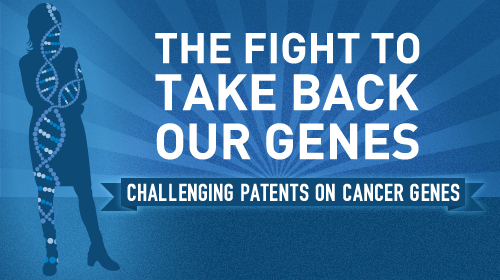Voices on Human Gene Patents: An Agonizing Decision Made More Difficult Because of Gene Patents


This is day two of our blog series on The Fight To Take Back Our Genes featuring voices on Human Genes. Today’s guest blogger is a plaintiff in our case challenging the patent on two genes related to breast and ovarian cancers, BRCA1 and BRCA2.
My name is Runi Limary. I am 36 years old, Asian-American and live in Austin, Texas. I was only 28 when I was diagnosed with invasive breast cancer. My doctor recommended that I take the BRCA test. Those that test positive for the BRCA1 and BRCA2 gene mutation are at higher risk of having breast and ovarian cancer, and also have a higher risk of developing breast cancer in the other breast. Women are usually diagnosed at a younger age if they carry this genetic mutation. I agreed to have the test done because the test results would help me make the decision of whether or not I would need to have a single or a double mastectomy and whether or not to remove my ovaries.
My test results came back inconclusive. I tested positive for the BRCA1 with a “variant of uncertain significance.” Basically it meant that the company could not determine whether it was a dangerous mutation or a benign, uncommon one. I was told that the variant in my genes has been seen in only two other Asian women. The sample test population was not large enough for me to feel as if I truly tested positive or negative for the BRCA1 genetic mutation. Regardless, I elected to be aggressive and have a bilateral mastectomy (the removal of both my breasts) to lower my chances of recurrence in the future.
I have completed all my treatment for breast cancer but now I have to make a difficult decision about whether or not to have an oophorectomy (removal of the ovaries.) I am in my 30’s and do not have children. I want to be able to make an educated decision before I undergo a life changing surgery.
Gene patents give the patent holder control over whether other scientists can perform research to find out the meaning of different mutations along the patented genes. We need to make sure other researchers are free to test variants of uncertain significance and learn more about the genetic makeup of under-represented populations like the Asian population because we all have the right to know whether or not we truly have the BRCA mutation. The way it is now, I and other patients have to depend on the decisions made by a single company.
In 2009, 20 professional medical associations, geneticists, breast cancer and women’s health groups, and patients filed a lawsuit charging that patents on BRCA1 and BRCA2 are invalid and unconstitutional. The ACLU and the Public Patent Foundation, which represents the plaintiffs, will argue this case before the Supreme Court in April 2013.
Learn more about gene patenting and other civil liberty issues: Sign up for breaking news alerts, follow us on Twitter, and like us on Facebook.



